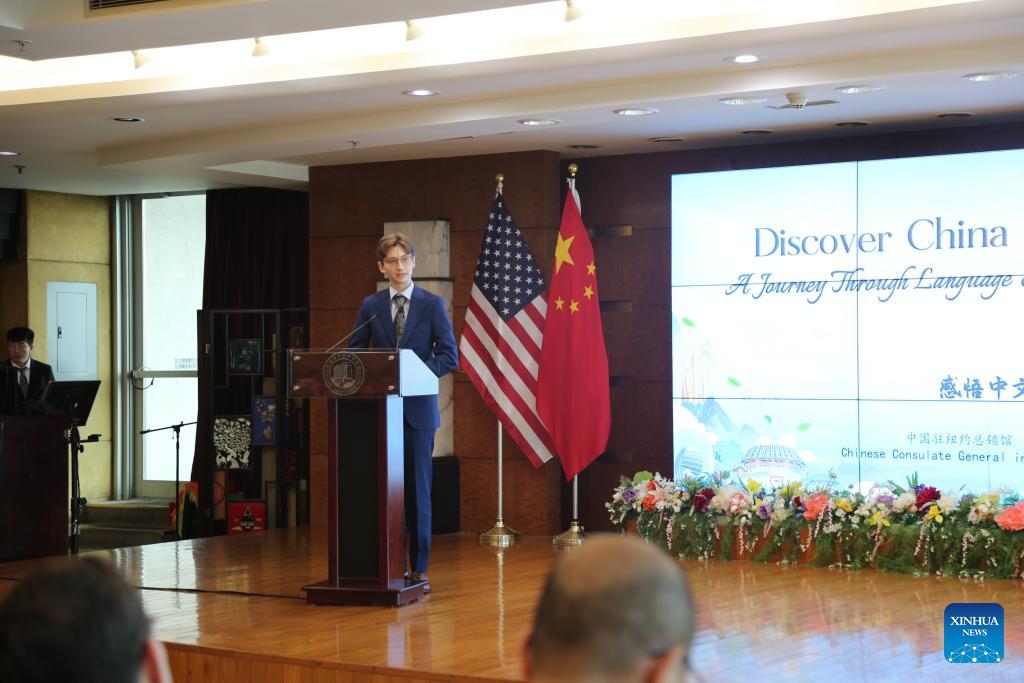

An American student shares his stories and thoughts on how to master the Chinese language at the open
Cultural performances by artists from southeast China's Fujian Province and stories of Chinese-speaking Americans on learning the language impressed around 100 U.S. students in New York at an event on Monday.
Big drums and parasols were featured in a dance named "Golden Drums," the first performance at the open day event hosted by the Consulate General of China in New York.
Artists from Zhangzhou City in Fujian presented two well-known musical pieces, "Catching Butterflies While Picking Tea Leaves" and "Hard Workers, True Winner."
Masters of glove puppetry, an intangible cultural heritage from Zhangzhou, performed captivating stories from the Water Margin, one of China's most beloved classic novels.
They also demonstrated how to play with the puppets and invited attendees to try it out themselves.
Students had the opportunity to taste Chinese tea and appreciate Chinese calligraphy.
Several speakers shared their stories and thoughts on how to master the Chinese language.
Alexander Given, a graduating senior at Saint Joseph's University in Philadelphia, said he had been fascinated by the story of the Monkey King, or Sun Wukong, as a young boy.
"Even then as a young child, I knew that I wanted to visit China no matter what. I was determined to see the diverse landscapes, vast cities, and historical landmarks for myself," Given said.
Given started to learn Mandarin in high school and pursued a degree in international relations and Asian studies as an undergraduate student.
"What I remember most during my time as a student learning about China is not necessarily the lessons in all of the homework, but the experiences I had and the people I met. It is these interactions at the personal level that are most important," he said.
These experiences helped shape his views on international relations and the world, he said.
"There are many doors open to me now. And after looking into different opportunities, I hope that I might be able to attend graduate school in China or perhaps even work there," Given said.
James B. Heimowitz, honorary chair of the China Institute in America, said his journey to understanding China started in Fujian decades ago.
Heimowitz said he can't think of a better way for American youth to gain better insights into the way in which Chinese people are thinking about the future than being able to access China through its language.
"I hope each of you will take the time to create your own journey and your own experiences in China. That's truly what it means to be a part of our future," he said, noting that China is very much a part of this planet's future.
Heimowitz also presided at a fireside discussion with educators of the Chinese language and young adults who have mastered the language.
The American students present said the stories were encouraging to them.
"I think that seeing people that aren't Chinese being able to speak Chinese so well was very encouraging ... Seeing an American person speaking Chinese so well is encouraging for me because I want to be able to get to that level," said Teyo Agoyo, a senior from Friends Select School in Philadelphia.
He hoped the Chinese language would help him make a lot of connections in his future career.
